Masayoshi Son: From the investment legend of ‘big food’ to become the king of failed, illusioned presentations?
- Tram Ho
Masayoshi Son’s recent earnings report was one of the saddest moments in his memory.
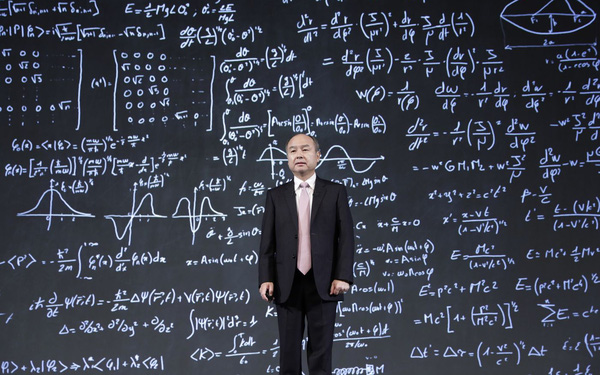
The billionaire began by comparing the devastating effects that the Covid-19 epidemic caused compared to the Great Depression. Son explained why Softbank had just reported the biggest loss in 39 years. The company’s $ 100 billion Vision Fund has lost $ 18 billion due to investments in startups including WeWork and Uber. Son then moved on to this new slide: Viruscorona Valley.
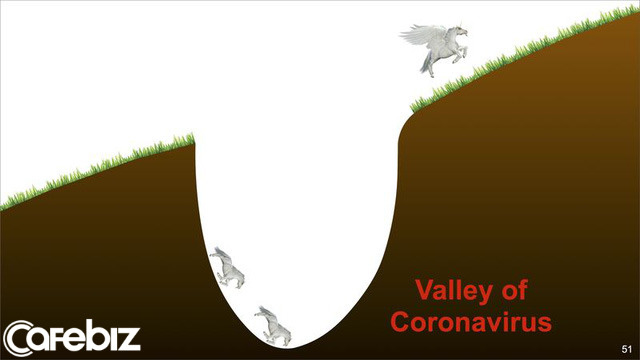
Son seems to be trying to show that while some Vision Fund investments seem to be failing, others are emerging very strongly during the crisis. However, that chart has made the press and social networks laugh.
It is a fact that Son seems to be having a hard time communicating his messages. When Softbank was in its prime, the Japanese acclaimed his grotesque style – from the boring cure claim to the fact that Softbank’s Pepper robot could read its business results. However, in recent years, global investors have begun to turn away from Son’s presentations.
“That attitude used to help build Son’s reputation. But the legendary investor investor he once hailed was no more and now it is even against him,” Justin Tang. – The owner of a research firm in Singapore said.
Some people have revealed that Son’s personal taste is to make clear topics in presentations, using simple presentations that he thinks anyone can understand. Son prefers to use metaphors to create another more accessible concept. For example, in February, he had a slide with the word “the tide is turning” with an ocean image. This week, he will have to have a new presentation at the General Meeting of Shareholders of Softbank.
Son, 62, is very interested in making slides. He has a group of about sixteen and twenty-year-olds responsible for drafting manuscripts for presentations. They will collect his statements over the years to use as a repository for manuscripts and then submit them to Son for his careful editing, some of which will be changed at the last minute. when the employees were in turmoil.
Son built Softbank from a computer software distributor into a global corporation by borrowing money to pay for attractive acquisitions. He has always had trouble persuading investors to trust Softbank’s tech startups.
For many years, Son tried different methods to convince investors that his company was undervalued. In November 2014, he used the image of an allegory of geese next to the golden eggs to talk about the Softbank value being undervalued.
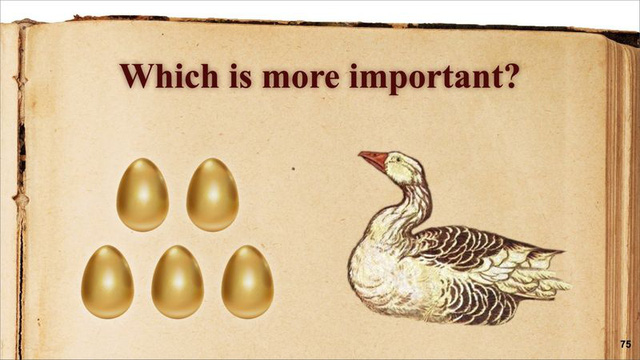
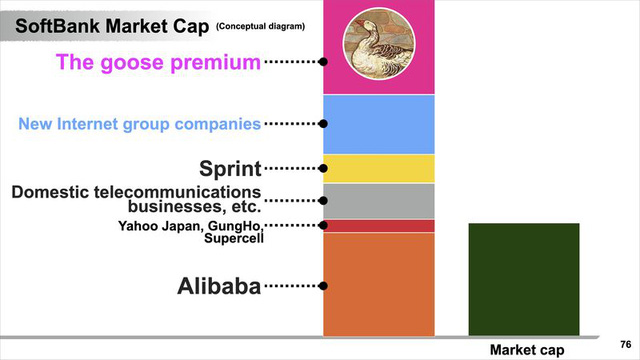
“Softbank is a goose with a lot of yellow eggs in its stomach, although it is still early to be marketed. Softbank is currently priced less than the total value of these eggs,” Son explained. reporters.
4 years later, this comparison didn’t seem to prove it was real and Son had to find another way, this time through math …
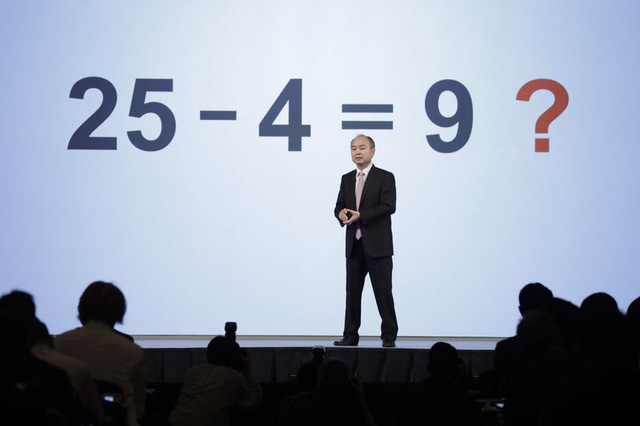
Does Son’s slide show a math question 25 minus 4 is equal to 9? Explaining that the value of 25 trillion yen of Softbank’s assets at that time minus 4 trillion yen of debt could not be equal to 9 trillion yen as their current market capitalization, that figure had to be larger. Softbank shares are trading at less than 50% of the company’s assets including domestic telecom branches, shares in Alibaba, Sprint and Yahoo Japan.
Last November, Softbank reported its first quarterly loss in 14 years after placing a $ 4.6 billion bet on WeWork, which searched for a $ 9.5 billion bailout from Softbank. Son stood on stage, justifying his investments and outlining a very “hypothetical” path to profitability.
In February this year, a quarter after WeWork recorded a record loss, Son came up with another idea – he explained to everyone that an object could be very different when viewed in different directions, alluding to Softbank.
He urged investors to focus on the shareholder value of Softbank rather than operating profit, which caused the company’s stock to shake strongly. “The only thing an investment firm like Softbank should be weighed against is the value of a shareholder’s rise or fall”.
Son often begins his presentations by asking the question: What is Softbank? The answer may vary from year to year but some things remain the same: Son’s sense of enormous social duty and obsession to be No. 1.
The billionaire describes himself as a strong believer in an information revolution – something that will one day see computers fit into the human brain and body. Son always talks about these ideas whenever he wants to set the stage for his latest adventure.
Son argues that no industry is safe during the earthquakes, technology changes and only the strongest can survive.
Most of Son’s predictions about the future of technology still need many years ahead to prove but a few have come true. Softbank’s operating profit reached 1 trillion yen in fiscal 2013. But last year, they created another record – a loss of 1.35 trillion yen.
Source : Genk
